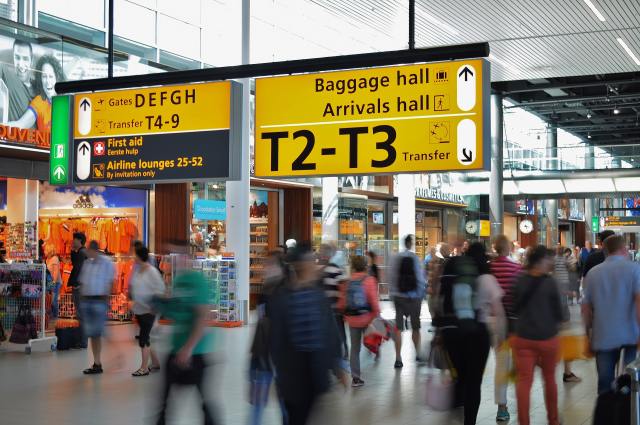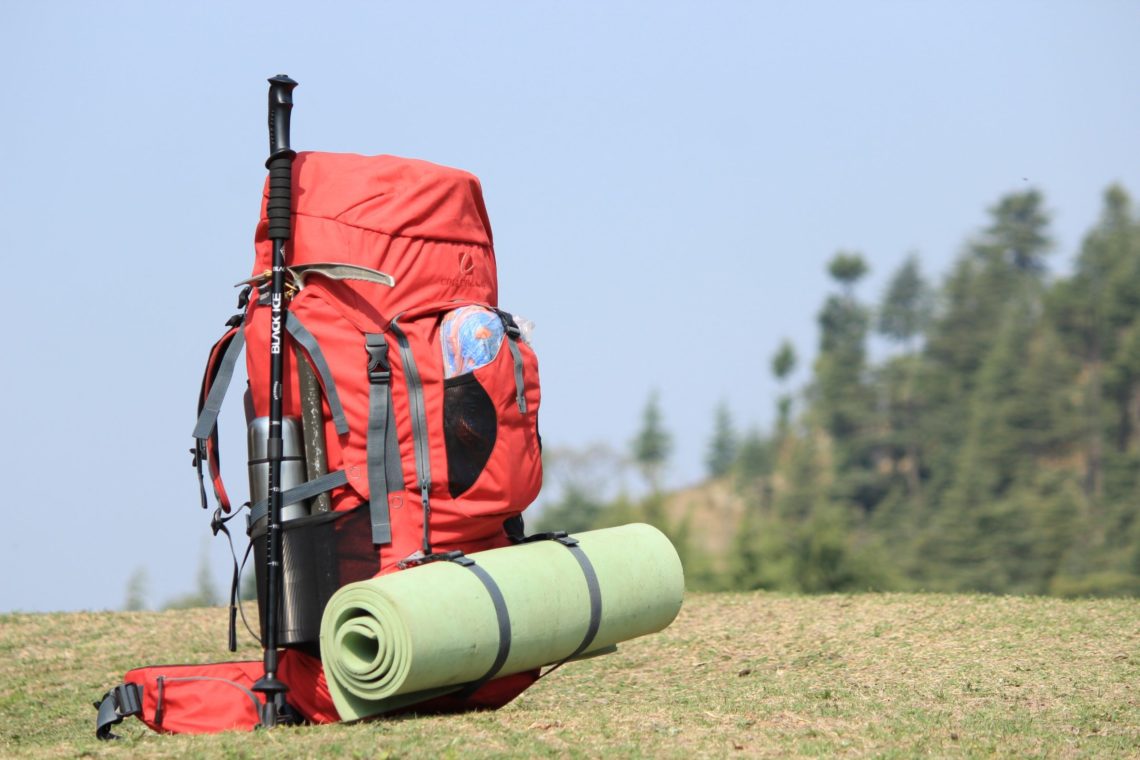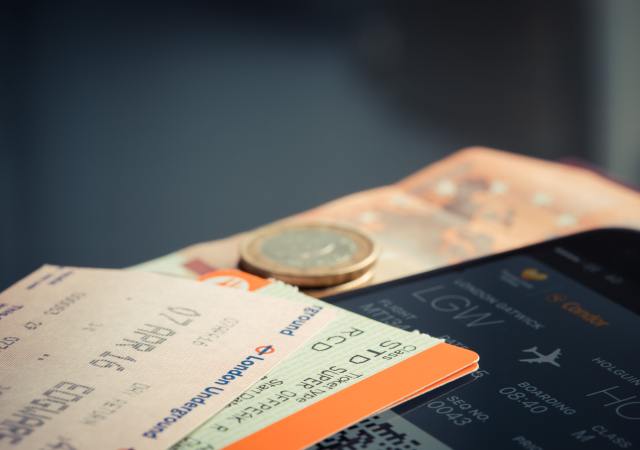Embarking on a solo travel adventure can be thrilling and empowering, but it’s important to be well-prepared to avoid common mistakes that could dampen your experience. In this article, we will explore 11 mistakes that solo travelers should avoid, ranging from not having physical copies of their travel documents to ignoring their gut feelings. From setting the right budget to choosing the ideal accommodation, we will cover a wide array of topics to ensure that your solo journey is memorable for all the right reasons. Whether you’re an experienced solo traveler or about to embark on your first solo adventure, these tips will prove invaluable to enhance your travel experience. So pack your bags, grab your passport, and let’s dive into the world of solo travel!

This image is property of i0.wp.com.
Mistake #1: Only having digital copies of travel documents
Importance of physical copies
When it comes to traveling, it’s crucial to have both digital and physical copies of your travel documents. While digital copies are convenient and easily accessible on your smartphone or laptop, they can be prone to technical issues or theft. Physical copies, on the other hand, act as backups that can be used in case of emergencies or when technology fails.
Keeping digital and physical copies
To ensure you have all your bases covered, it’s recommended to keep both digital and physical copies of your travel documents. Digitize all your important documents such as passports, visas, driver’s licenses, and travel insurance policies. Save these digital copies on secure cloud storage platforms or encrypted USB drives. Additionally, print out hard copies of these documents and keep them in a designated travel folder or pouch.
Storing copies in secure locations
To further minimize the risk of losing your travel documents, it’s essential to store both your digital and physical copies in secure locations. For digital copies, choose a cloud storage platform that offers strong encryption and two-factor authentication. As for physical copies, consider carrying them in a money belt or a waterproof document holder that can be worn discreetly under your clothing. It’s important to ensure these items are easily accessible, yet not easily visible to potential thieves.
Mistake #2: Setting the wrong budget for the trip
Researching costs beforehand
One common mistake that many travelers make is underestimating the expenses associated with their trip. To avoid this, it’s crucial to research and understand the costs associated with your destination beforehand. Take into account accommodation, transportation, meals, attractions, and any other expenses that you may encounter. Look for travel forums, websites, or guidebooks that can provide you with information on average costs in your chosen destination.
Creating a detailed budget
Once you have a better understanding of the costs, it’s recommended to create a detailed budget for your trip. Determine how much you are willing to spend on each category, such as accommodation, transportation, food, and activities. Allocate a realistic amount for each category, taking into consideration any special events or attractions you plan to visit. Having a detailed budget will help you stay on track and avoid overspending.
Including unexpected expenses
While it’s important to plan your budget based on estimated costs, it’s equally essential to include a buffer for unexpected expenses. Traveling often comes with unforeseen circumstances, such as flight delays, medical emergencies, or lost/stolen belongings. By setting aside some extra money in your budget, you’ll be better prepared to handle these situations without disrupting your overall travel plans.
Mistake #3: Bringing only one credit card without a backup
Reasons for having multiple cards
When traveling, relying on a single credit card can be risky. If your card gets lost, stolen, or compromised, it can greatly disrupt your trip and leave you in a vulnerable financial position. To avoid this, it’s advisable to bring multiple credit cards with you. Having backup options will ensure that you can still access funds and make necessary payments even if one card becomes unusable.
Informing banks about travel plans
Before embarking on your trip, make sure to inform your credit card providers about your travel plans. This helps prevent your cards from being flagged for suspicious activity when used in another country. Informing your banks in advance allows them to note your travel destinations and dates in their system, reducing the chances of your card being declined or blocked while you’re away.
Carrying emergency cash
In addition to multiple credit cards, it’s also wise to carry some emergency cash with you. While credit cards are widely accepted in most tourist destinations, there may be situations where cash is necessary, such as when visiting local markets or small establishments that don’t accept cards. Having some cash on hand will give you peace of mind knowing that you can still make purchases or pay for services even if electronic payment options are inaccessible.
Mistake #4: Sharing your location in real-time on social media
Privacy and security concerns
Sharing your location in real-time on social media might seem like a fun way to keep friends and family updated on your travels. However, it can also pose privacy and security risks. Broadcasting your exact whereabouts to the public can make you an easy target for potential thieves who may be monitoring social media for easy targets. It’s best to be cautious about sharing too much personal information, especially in real-time.
Posting updates after leaving a location
To maintain your privacy and security while traveling, it’s advisable to wait until you have left a location before posting updates or geotagged photos on social media platforms. By doing this, you minimize the chances of someone tracking your movements or targeting your belongings while you’re still in the vicinity. Remember, it’s always better to err on the side of caution when it comes to your safety.
Selective sharing with trusted individuals
If you still want to share your travel experiences with friends and family, consider using more private forms of communication such as group chats, private messaging apps, or dedicated travel blogs that allow you to control who sees your content. By sharing selectively with trusted individuals, you can still keep loved ones informed without broadcasting your every move to the public.

This image is property of i0.wp.com.
Mistake #5: Not paying attention to your surroundings
Staying alert and aware
When traveling solo, paying attention to your surroundings is of utmost importance. Being alert and aware of your environment can help you avoid potential risks and stay safe throughout your journey. Take note of the people around you, the layout of the area, and any potential hazards or suspicious activities. By staying vigilant, you can proactively respond to any situations that may arise.
Avoiding distractions
In order to stay attentive, it’s crucial to minimize distractions while you’re on the move. Avoid excessive use of headphones, especially in unfamiliar or crowded areas, as it can limit your ability to hear potential warnings or threats. Similarly, limit distractions caused by excessive smartphone use, as constantly staring at your screen can make you an easy target for pickpockets or other criminals.
Trusting instincts
One of your greatest assets while traveling solo is your intuition. Trust your gut feeling and listen to your instincts when you feel like something is off. If a place or situation seems unsafe, remove yourself from it. If a person or encounter feels potentially risky, distance yourself and seek help if needed. Your intuition often picks up on subtle cues that may not be immediately apparent, so it’s important to listen to it.
Mistake #6: Picking the wrong accommodation
Researching accommodation options
Choosing the right accommodation is essential for a pleasant and safe travel experience. Don’t rely solely on booking websites; take the time to research different types of accommodation options available at your destination. Consider factors such as location, amenities, reviews, and prices to find the best fit for your needs and preferences.
Reading reviews and ratings
When researching accommodation options, make sure to read reviews and ratings from previous guests. These reviews provide valuable insights into the quality, cleanliness, safety, and service of a particular property. Pay attention to recent reviews to ensure that any potential issues have been addressed and resolved. It’s also helpful to look for reviews from solo travelers to get a better understanding of their experiences.
Considering location and safety
When traveling alone, it’s important to choose accommodation in safe and well-located areas. Look for accommodations that are centrally located, well-connected to public transportation, and in neighborhoods that are known for their safety. Prioritizing safety and convenience in your choice of accommodation can greatly enhance your overall travel experience.

This image is property of i0.wp.com.
Mistake #7: Booking flights with super short layovers
Understanding the risks
While booking flights with short layovers may seem like a time-saving option, it can also come with risks. Delays, especially in busy airports, are common and can be unpredictable. If you have a tight layover and your first flight gets delayed, you may end up missing your connecting flight, causing significant inconvenience, stress, and potential additional expenses.
Allowing sufficient time between flights
To avoid the stress and hassle of rushing through airports, it’s advisable to allow sufficient time between flights when making your travel arrangements. Consider factors such as the size of the airport, the distance between terminals, and any additional security or immigration procedures that may need to be completed. It’s better to have a longer layover and spend time exploring or relaxing in the airport than to risk missing your connecting flight.
Considering potential delays
When planning your itinerary, it’s important to bear in mind that delays are a common occurrence in air travel. Be prepared for the possibility of delays by factoring in extra time in your overall travel schedule. This way, if any delays occur, you’ll have a buffer that allows you to adjust your plans without any major disruptions.
Mistake #8: Not packing emergency medications
Identifying necessary medications
If you have any pre-existing medical conditions or require specific medications, it’s crucial to pack an adequate supply for your trip. Consult with your healthcare provider before traveling to determine the necessary medications to bring. Take into account the duration of your trip, the conditions you may encounter, and any potential side effects or interactions of your medications.
Carrying prescriptions and medical information
In addition to packing your necessary medications, it’s important to carry copies of your prescriptions and any relevant medical information. This documentation can be crucial in case you need to refill your medications or seek medical assistance while abroad. Having this information readily available can help medical professionals understand your medical needs and provide appropriate care.
Preparing for common health issues
Apart from your specific medications, it’s also advisable to pack common over-the-counter medications to address minor health issues that may arise during your trip. These may include pain relievers, antidiarrheal medication, antihistamines, and basic first-aid supplies. Being prepared for common health issues can help you address them promptly and continue enjoying your travel experience.

This image is property of i0.wp.com.
Mistake #9: Not getting travel insurance
Understanding the importance of travel insurance
Travel insurance is often overlooked, but it is an essential aspect of travel planning. It provides financial protection in case of unforeseen events such as medical emergencies, trip cancellations, lost luggage, or theft. Having travel insurance gives you peace of mind knowing that you’re protected against potential financial losses that can occur during your trip.
Researching and comparing insurance plans
When it comes to travel insurance, it’s important to research and compare different insurance plans to find the one that best suits your needs. Consider factors such as coverage limits, exclusions, deductibles, and the reputation of the insurance provider. Read reviews and seek recommendations from other travelers to ensure you choose a reliable insurance plan.
Considering coverage for medical emergencies, trip cancellation, etc.
When evaluating travel insurance plans, make sure to consider coverage for medical emergencies, trip cancellation/interruption, lost luggage, and other specific needs. For solo travelers especially, medical coverage is crucial as it provides assistance in case of accidents, illnesses, or the need for emergency medical evacuation. It’s important to carefully review the coverage details of each plan to ensure it aligns with your specific requirements.
Traveling tips and places you must visit around the world
Researching popular travel destinations
Exploring the world offers a plethora of exciting and diverse travel destinations. To make the most of your travel experiences, take time to research popular destinations that align with your interests and preferences. Consider factors such as cultural attractions, historical sites, natural wonders, and unique experiences that each destination has to offer.
Creating a travel bucket list
A travel bucket list is a great way to keep track of the places you want to visit and ensure you don’t miss out on any incredible experiences. Research destinations that have always fascinated you and compile them into a list. As you check off each destination, you’ll have a sense of accomplishment and be motivated to explore new places.
Tips for cultural sensitivity and local customs
While immersing yourself in different cultures is an enriching experience, it’s important to be mindful of local customs and practices. Before visiting a new destination, familiarize yourself with the local etiquette, traditions, and customs. Dress appropriately, be respectful of religious and cultural sites, and learn a few basic phrases in the local language to show your appreciation for the local culture.
With these tips in mind, you can avoid common mistakes that solo travelers often make and have a safe, enjoyable, and memorable travel experience. Remember to plan ahead, stay aware of your surroundings, and embrace new cultures and destinations. Happy travels!

This image is property of i0.wp.com.
